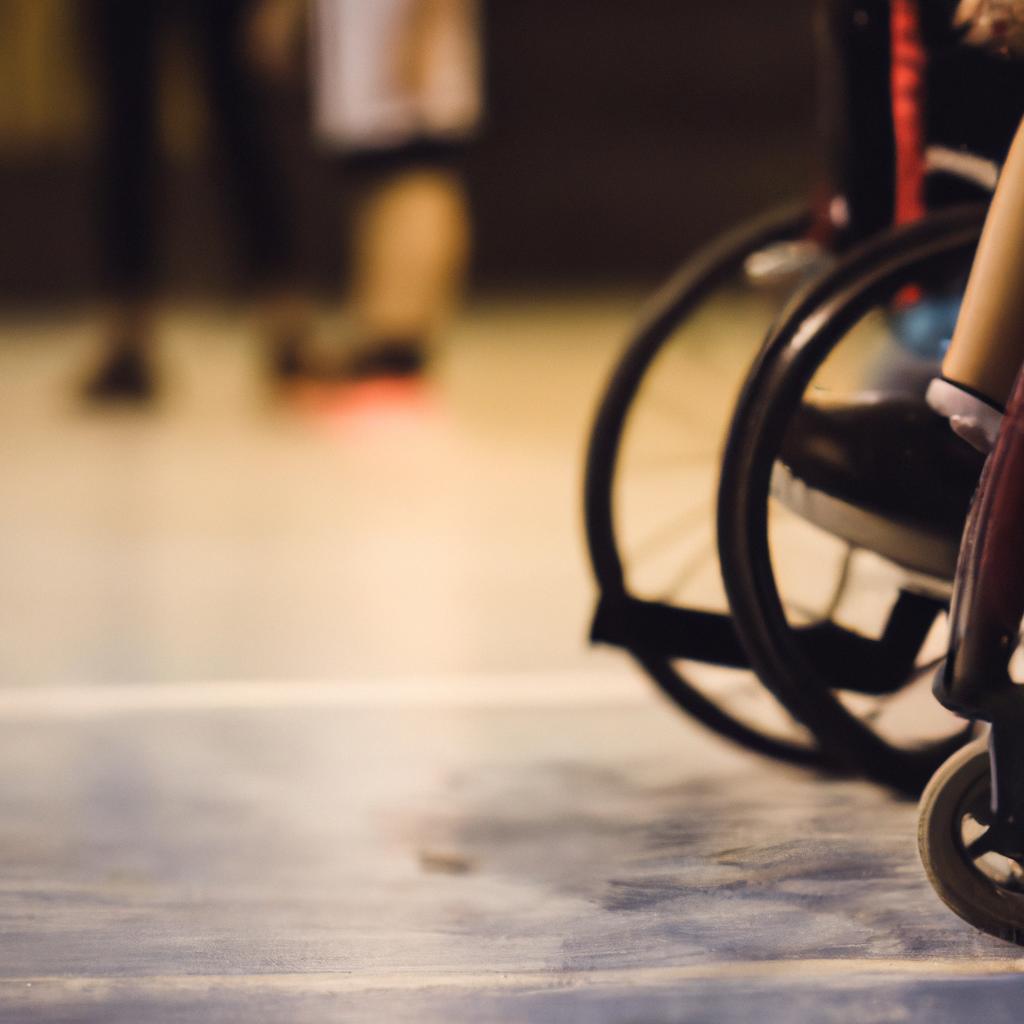Adapting Team Sports for All: Inclusive Strategies for Coaches Working with Athletes with Disabilities
# Adapting Team Sports for All: Inclusive Strategies for Coaches Working with Athletes with Disabilities
In today’s society, the importance of inclusivity in sports cannot be overstated. Coaches play a pivotal role in ensuring that athletes with disabilities feel welcome and are given the opportunity to participate in team sports. By creating an inclusive environment, coaches can help athletes build self-esteem, improve their physical health, and foster a sense of belonging. In this blog post, we will explore inclusive strategies for coaches, nutrition tips, exercise advice, and the health benefits of adapting team sports for athletes with disabilities.
## Understanding Inclusivity in Team Sports
### The Importance of Inclusion
Inclusion in sports is about more than simply allowing athletes with disabilities to participate; it is about ensuring they feel valued and supported. Coaches must recognize the diverse abilities of their athletes and adapt their coaching strategies accordingly. This not only enhances the athletes’ experience but also enriches the team as a whole by promoting teamwork, empathy, and mutual respect.
### Creating an Inclusive Environment
Creating an inclusive environment starts with an open mindset. Coaches should educate themselves about different disabilities, as well as the specific needs and abilities of their athletes. This knowledge allows them to tailor their coaching methods, ensuring every athlete has the opportunity to excel. It is also crucial for coaches to foster an atmosphere of respect among teammates, encouraging everyone to support one another regardless of ability.
## Nutrition Tips for Athletes with Disabilities
Proper nutrition is essential for athletes of all abilities, but it takes on an even more significant role for those with disabilities who may face unique dietary needs or challenges.
### Balanced Diet Essentials
A balanced diet for athletes should include a mix of carbohydrates, proteins, healthy fats, vitamins, and minerals. Coaches should guide their athletes in understanding the importance of these macronutrients, emphasizing whole foods like fruits, vegetables, whole grains, lean proteins, and healthy fats.
### Hydration
Hydration is particularly vital for athletes with disabilities who may experience different hydration needs based on their level of physical activity and any medications they may be taking. Coaches should encourage regular fluid intake before, during, and after practices and competitions.
### Special Considerations
Some athletes may have specific dietary restrictions or medical conditions that require tailored nutritional advice. Coaches should work closely with nutritionists or dietitians to create individualized eating plans that meet each athlete’s needs while promoting optimal performance.
## Exercise Advice for Inclusive Team Sports
Exercise is foundational to athletic performance, and adapting exercises for athletes with disabilities is crucial for their development and enjoyment.
### Modifying Drills and Activities
Coaches should consider modifying drills and activities to ensure all athletes can participate. For instance, if a drill requires running, athletes who use wheelchairs can be given a modified task that focuses on hand-eye coordination. Coaches can also provide alternative skills-based activities that develop the same physical competencies without compromising inclusivity.
### Fostering Teamwork
Encouraging teamwork is vital in adaptive sports. Pairing athletes of different abilities during practices can foster communication and create a supportive environment. Emphasizing the importance of collaboration can help athletes build relationships and improve their social skills while working towards common goals.
## Health Benefits of Inclusive Sports
Participating in team sports offers numerous health benefits, particularly for athletes with disabilities.
### Physical Health
Engaging in regular physical activity can significantly improve cardiovascular health, muscle strength, and flexibility. For athletes with disabilities, tailored exercise programs can help manage and alleviate secondary health issues related to their condition.
### Mental Health
Inclusion in team sports fosters a sense of belonging, which can positively impact mental health. Athletes with disabilities often face societal stigma, and being part of a supportive team can help combat feelings of isolation and depression. Additionally, the camaraderie and friendships formed through sports can lead to improved self-esteem and overall well-being.
### Social Skills Development
Participating in team sports provides athletes with opportunities to develop social skills. Learning to communicate, cooperate, and resolve conflicts with teammates can be invaluable, both on and off the field. These skills can translate into improved relationships in other areas of life, such as in school or at work.
## Conclusion
Adapting team sports for athletes with disabilities is a powerful way to promote inclusivity, health, and well-being. Coaches can create a welcoming environment by understanding the unique needs of their athletes, implementing inclusive coaching strategies, providing nutritional guidance, and emphasizing the importance of teamwork. By doing so, they not only enhance















Post Comment